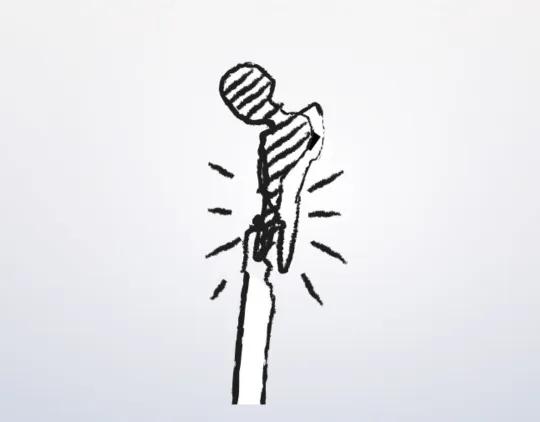Femoral stem removal
1. General considerations
Consideration should be made to perform an extended trochanteric osteotomy (ETO). This will minimize surgical trauma and expedite stem and cement extraction.
2. Cemented stem removal
Cemented stem removal requires proper tools, such as the cement removal osteotomes and the reverse hooks.
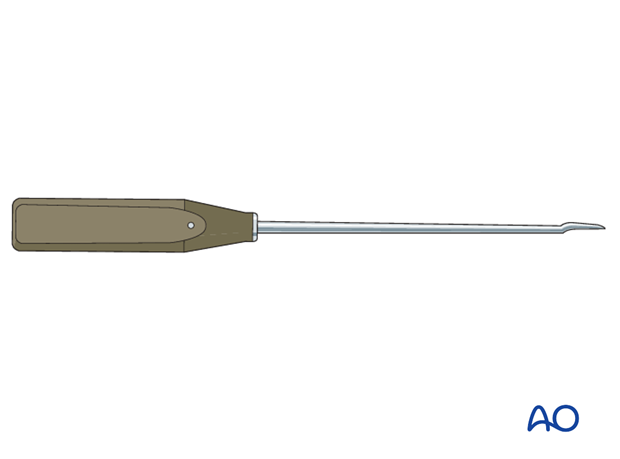
On occasion, high-speed burr may be necessary.

The universal stem extraction tools system is very helpful in removing both cementless and cemented stems.
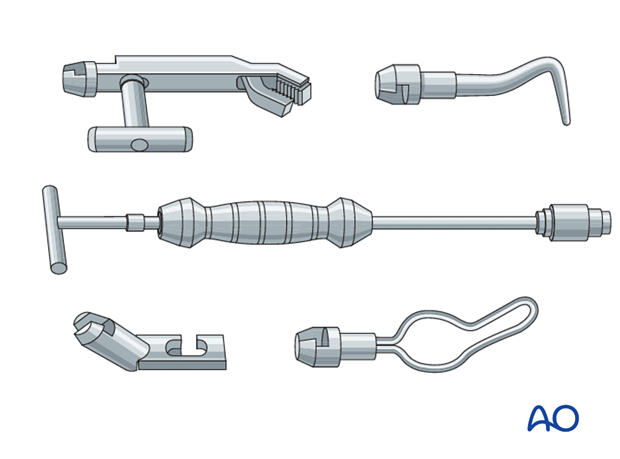
The loose stem is pulled out with the universal stem extraction tools system. Tool selection depends on the stem design and surgeon's preference.
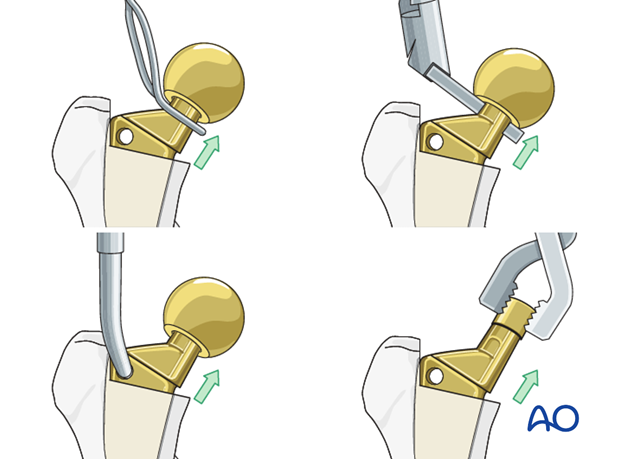
The well-fixed stem is more problematic. The interface between the stem and cement must be disrupted with flexible osteotomes prior to extraction.
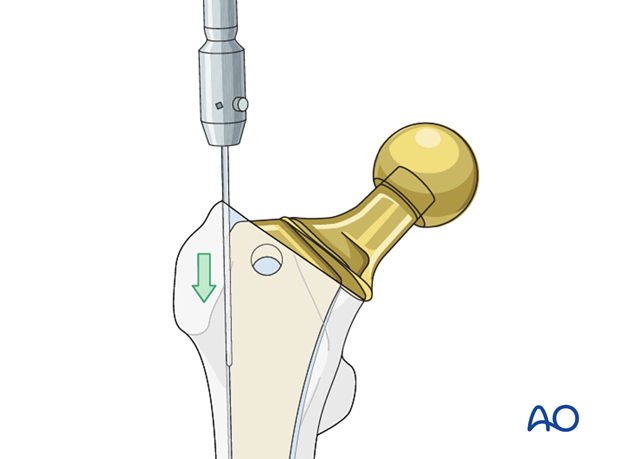
Residual cement after stem removal can be removed with the cement removal osteotomes and reverse hooks.
If available, ultrasonic devices can be used to disrupt cement mantle.
The cement restrictor must be dislodged or removed. This can be performed with a guide pin inserted in the middle of the plug followed by cannulated reamers to fragment the device.
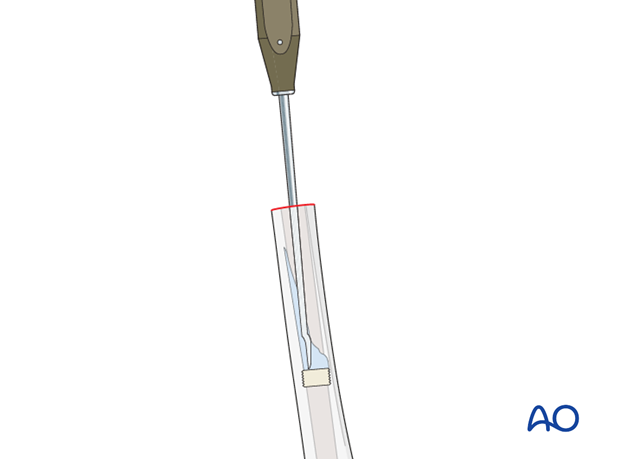
On occasion, high-speed burr may be necessary.

3. Cementless stem removal
Cementless stem removal is most facile if the surgeon has the proper extraction tools available from the specific device manufacturer.
The bone-implant interface should be disrupted prior to forceful stem removal with the extraction devices.
Flexible osteotomes are used to disrupt the bone-implant interface around the stem.
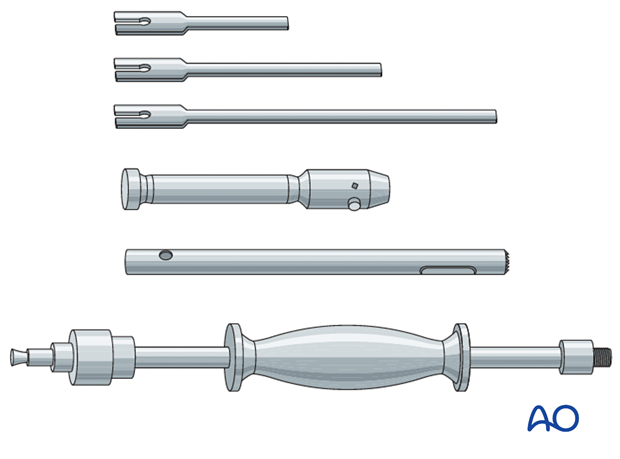
Different lengths and diameters of the osteotomes should be used dependent upon the stem geometry.
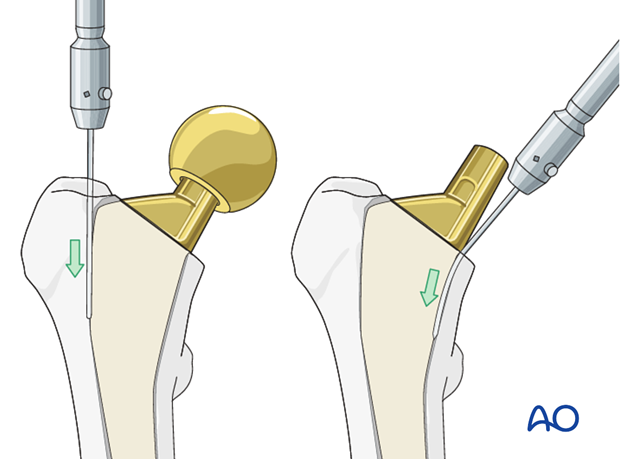
The universal stem extraction tools system is very helpful in removing both cementless and cemented stems.

The loose stem is pulled out with the universal stem extraction tools system. The best tool to be used depends on the stem design and surgeon's preference.

